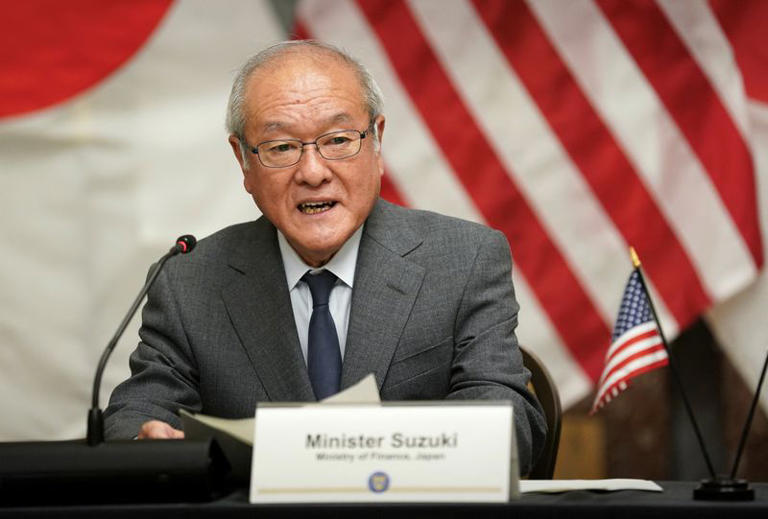Japanese Finance Minister Shunichi Suzuki’s recent remarks reflect growing concerns over the rapid depreciation of the yen against the U.S. dollar, marking its weakest level in 38 years at 161 yen per dollar. This significant decline has sparked apprehension within Japanese economic circles and prompted a proactive stance from authorities to address its potential implications.
In a press conference, Minister Suzuki emphasized the one-sided and swift nature of recent foreign exchange movements, highlighting their potential impact on Japan’s economy. He stressed the government’s commitment to closely monitoring these developments with a high sense of urgency and pledged to take appropriate measures to stabilize the currency and maintain confidence in the yen. This commitment underscores Japan’s longstanding policy of intervening in currency markets to prevent excessive volatility and maintain stable economic conditions.
The yen’s recent slide has been a focal point of concern for Japanese financial authorities, who have ramped up warnings and signaled readiness to intervene further if necessary. Earlier interventions in late April and early May totaled a substantial 9.8 trillion yen ($60.91 billion) following the yen’s drop to a 34-year low of 160.245 per dollar on April 29. These interventions reflect Japan’s proactive approach to managing currency fluctuations and ensuring economic stability amid global economic uncertainties.
The current depreciation of the yen is occurring against a backdrop of diverging interest rate policies between Japan and the United States. Stable U.S. yields and solid consumer price gains in Tokyo have not reversed the yen’s downward trajectory, exacerbating concerns among Japanese policymakers. The interest rate differential has intensified pressure on Japanese authorities to implement effective measures to mitigate the yen’s decline, which could impact Japan’s export competitiveness and overall economic performance.
Minister Suzuki’s comments also underscore the importance of ongoing fiscal reforms in Japan. Despite the challenges posed by the yen’s depreciation, he emphasized the government’s commitment to advancing fiscal reforms to bolster economic resilience and sustain long-term growth. These reforms are critical in enhancing Japan’s fiscal health and strengthening its economic foundations amid external economic pressures.
Looking ahead, Japanese authorities face the task of balancing intervention in the currency markets with broader economic policies aimed at promoting sustainable growth and stability. The yen’s exchange rate will continue to be closely monitored, with any further depreciation likely prompting additional measures to stabilize the currency and safeguard Japan’s economic interests.
In conclusion, Minister Suzuki’s statements highlight Japan’s proactive stance in addressing currency volatility and maintaining economic stability amidst global economic uncertainties. The government’s commitment to monitoring and responding to foreign exchange movements underscores its determination to protect Japan’s economic interests and uphold confidence in the yen, reinforcing the importance of sound economic policies and fiscal reforms in navigating current challenges and promoting future growth.
